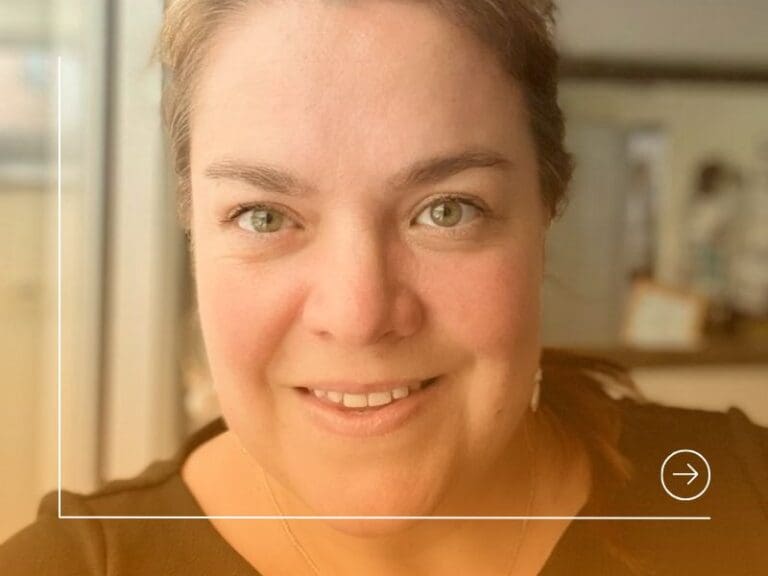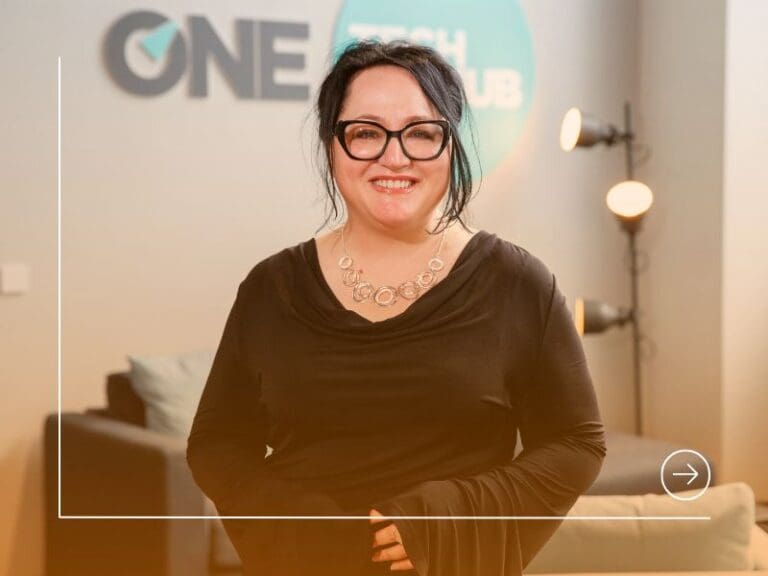I’m an organizational psychologist with nearly a decade of experience working across all areas of HR, as well as handling finance, administration, and operational responsibilities. My background combines psychology, political science, and a master’s in data analytics and management.
I’ve worked on connecting people-focused approaches with the practicalities of running a business, ensuring that systems, processes, and day-to-day operations function effectively while supporting the individuals involved. My focus is on balancing the complexities of organizations with thoughtful, realistic solutions.
How did you land your current role? Was it planned?
It wasn’t planned, at least not in the traditional sense of a mapped-out career trajectory. My career has always been less about following a specific plan and more about staying curious, observing the context around me, and making deliberate decisions based on what feels both challenging and meaningful.
When Mailbird came into the picture, I was in a stable role but craving something more dynamic. The idea of joining a remote-first, globally distributed team felt equal parts intimidating and exciting. Remote work wasn’t entirely new to me, but stepping into a leadership position in such a setting was. There’s a unique complexity to managing HR in a global context—different time zones, diverse cultures, varied expectations—and that was the hook. I wasn’t just drawn to the role itself; I was drawn to the environment it was situated in.
So, no, it wasn’t part of a grand master plan, but it was intentional in the sense that I knew I wanted to push myself into a space where both the stakes and the rewards felt real.
What are the key roles in your field of work, and why did you choose your current expertise?
In HR, there’s an endless spectrum of roles—from the highly operational to the deeply strategic. Some focus on recruitment, others on compliance, and some take the reins on organizational design or employee experience. What fascinates me is the interplay between structure and people—the way the systems we create either empower or hinder individuals.
My focus areas, like performance management and organizational design, stem from that interest. These aren’t just abstract HR buzzwords to me. Performance management, for example, isn’t about endless metrics or cookie-cutter reviews. It’s about creating a rhythm of feedback and growth that actually means something to both the individual and the company. Organizational design? That’s about understanding how people move through their workdays and ensuring that the way we’re structured doesn’t get in the way of the work itself.
I chose this path because it allows me to zoom in and out—to dig into the details while keeping the bigger picture in mind. HR, when done well, isn’t just about solving immediate problems. It’s about anticipating what people will need and creating an environment that lets them thrive without unnecessary friction.
What are you most proud of in your career, so far?
Pride is a tricky thing. I don’t look at my career as a collection of achievements but as a series of questions I’ve tried to answer along the way. What I’m most proud of is the ability to adapt and still hold onto my sense of self—especially in spaces where the expectation is to conform or to deliver something that’s shiny but hollow.
I’m proud of the workplaces I’ve helped shape, not because they’re perfect but because they reflect real effort to balance the needs of the business with the humanity of the people working there. I’m proud of the moments when someone said, “I feel heard,” or when I’ve been able to push for a process that actually respects the people involved instead of just checking a box.
And, of course, I’m proud of the risks I’ve taken. There’s a lot of pressure—internal and external—to stick with what’s safe, but some of the most fulfilling chapters of my career have come from choosing the less obvious path.
Are there any specific skills or traits that you notice companies look for when you’re searching for roles in your field?
In HR, there’s an interesting paradox: companies often want someone who can be both strategic and hands-on, capable of designing systems while understanding their personal impact on individuals. Adaptability is particularly valued, especially in remote or global settings where flexibility is not just desirable—it’s essential.
Empathy is frequently highlighted as a key trait, but in practice, it’s much more nuanced. Companies value leaders who can navigate the complexities of human behavior while maintaining clarity and focus—leaders who can make difficult decisions without losing sight of the human element. Business acumen is also critical; HR professionals are expected to champion people’s needs while aligning them with organizational goals in a way that’s both strategic and sustainable.
Communication is another essential skill—being able to articulate ideas clearly and build trust across all levels of an organization is a true differentiator. It’s about balancing transparency with tact, navigating difficult conversations, and fostering an environment of trust. Finally, there’s the ability to learn, which is often overlooked. The field evolves constantly, and the willingness to admit what you don’t know while actively seeking answers is, arguably, one of the most valuable traits.
That’s the theory, at least. In practice, it’s not always easy to manifest all of this. HR is often positioned as a supportive function rather than a strategic partner. Many companies claim to want a sophisticated blend of skills—strategy, empathy, and leadership—but then reduce the role to something far narrower. You might find yourself excluded from key decisions, asked to smooth over problems rather than solve them, or expected to “manage” adults who should be capable of managing themselves. It can feel disheartening, but it also highlights why strong, thoughtful HR leadership is so necessary: to shift those dynamics and prove how impactful a well-executed HR strategy can be.
Has anyone ever tried to stop you from learning and developing in your professional life, or have you found the tech sector supportive?
No one’s ever outright told me, “You can’t grow here,” but the barriers are often more subtle—and systemic. There are environments where learning isn’t prioritized because it’s not seen as immediately profitable or worth the investment. And then there’s the added layer of being a woman, where your competence can often be overshadowed by assumptions about your demeanor or “fit.”
I remember one company I worked for that was acquired by a much larger organization. My role was shifted to something I had repeatedly expressed I wouldn’t want: purely operational, repetitive, and lacking any creativity. It was, to put it bluntly, the kind of role that stifles growth. The CFO of the acquiring company explained that this would also mean a smaller salary because “less work” meant “less pay”—even though I hadn’t asked for less work.
When I inquired about potential learning opportunities, hoping I could at least turn this into something developmental, he dismissed the idea, saying it “doesn’t make sense” and that he believed in an “apprentice-type” model of learning. In other words, no investment in overhead, no real interest in my ambitions, and no acknowledgment of what I could bring to the table. I was there to fill a gap they had, nothing more.
That experience, while frustrating, became a turning point for me. It clarified what I value in a workplace and what I won’t compromise on. I transitioned to a new company and role soon after, and while it was challenging at the time, I’m grateful for the lesson. It’s not just about finding the right opportunities; it’s also about recognizing when an environment isn’t serving your growth and being willing to walk away.
That said, I’ve also been fortunate to find pockets of genuine support. There have been leaders who encouraged me to push beyond what I thought I could do, colleagues who shared their expertise without ego, and roles that allowed me to experiment and fail safely. The tech sector, like any other field, is a mixed bag—it’s supportive when you find the right people, and it’s challenging when you don’t.
The trick, I think, is to stay stubborn about your own growth, even when the path isn’t obvious or when others don’t see your potential. Advocate for yourself, seek out environments that align with your ambitions, and don’t be afraid to leave places that don’t. Growth isn’t just about opportunities handed to you; it’s about the ones you carve out for yourself, sometimes despite the odds.
Have you ever faced insecurities and anxieties during your career, and how did you overcome them?
I’ll let you know when I figure it out—kidding, of course! But in all seriousness, I think the concept of “overcoming” insecurities can be misleading. It implies that there’s some end point where you’ll finally be free of doubt. That’s not how it works, at least not for me. Instead, I think it’s more productive to focus on working with those insecurities, understanding them, and figuring out how to keep moving forward in their presence.
The world we live in fuels insecurities in ways that are almost impossible to avoid, and workplaces are no exception. There are expectations, comparisons, and the ever-present pressure to prove your worth. What’s helped me is being really intentional about defining my own value—both as a person and a professional—and being clear about who I am, who I want to be, and what actually matters to me.
Part of that involves being very selective about whose advice or feedback I truly internalize. Even well-meaning people can project their own fears onto you, making you hesitant to take risks or shaping your decisions in ways that don’t align with who you are. Stories of success or failure from others can feel instructive, but they come with so much hidden context—things we can’t see or know. At the end of the day, their path isn’t yours, and their criteria for success shouldn’t dictate how you measure your own.
For me, it’s about acting despite the fear. Being afraid is part of the process, but moving forward anyway, based on your own well-thought-out criteria, is what matters. That doesn’t mean it’s easy or that it always works out. So far, it mostly has for me, but I’m fully aware that it doesn’t have to, and it might not in the future. That’s just the hard truth of trying to live and work authentically. It’s not foolproof, but I’d rather take those risks than live a life dictated by fear or by expectations that don’t align with what I care about.
Entering the world of work can be daunting. Do you have any words of advice for anyone feeling overwhelmed?
Entering the world of work can feel overwhelming, and that’s completely normal. You’re stepping into a system that often seems designed to test your resilience at every turn. The first thing I’d say is to reject the idea that you need to have everything figured out immediately. Careers aren’t linear, despite what the curated success stories might suggest. The pressure to “make it” right away is amplified by social media and the endless stream of advice from successful people, who often present their journeys as straightforward paths paved by their unique brilliance.
Here’s the thing: most of those stories omit the extenuating circumstances—the timing, the privilege, the sheer randomness—that contributed to their success. And they’ll rarely admit it, not because it’s untrue, but because our society values the myth of the self-made individual. Success is often equated with worth, so people cling to the narrative that they’re exceptional, as if acknowledging external factors would diminish their achievements. It doesn’t, of course, but the illusion persists, leaving many of us feeling like we’re missing some elusive quality.
Instead of focusing on the big picture of “success,” start with what’s in front of you. Find one task to do well, one relationship to nurture, one curiosity to explore. Small, deliberate steps compound over time and often take you further than a frantic attempt to do it all. And don’t underestimate the power of quiet observation—watch how others navigate challenges, learn from their approaches, and adapt them to suit your style. Mentorship doesn’t always have to be formal; sometimes it’s about recognizing the wisdom in the people around you.
It’s also important to recognize that the workplace is not a pure meritocracy. Yes, hard work and skills matter, but so do timing, luck, and the invisible politics of any organization. While this might sound disheartening, it can also be liberating. Your worth isn’t determined by a job title or the speed of your climb up the ladder. It’s about how you grow, what you learn, and how you navigate setbacks. The sooner you let go of the need to prove your value to others, the easier it becomes to focus on the work that truly matters to you.
What advice would you give other women wanting to reach their career goals in technology?
First, define what “career goals” mean to you—not what you think they should mean based on external expectations. Technology is a vast field, and there’s no one-size-fits-all path to success. If your goal is to lead, build, or innovate, let that guide your decisions, not the pressure to tick boxes that don’t resonate with you.
Second, don’t wait for permission. The reality is that the systems we operate in weren’t necessarily built with inclusivity in mind. That doesn’t mean you need to fight every battle, but it does mean you have to be deliberate about carving out your space. Advocate for yourself, ask for opportunities, and don’t hesitate to walk away from environments that don’t value your contributions.
And finally, surround yourself with people who inspire you and challenge you in equal measure. It’s easy to feel isolated, especially in male-dominated spaces, but you’re not alone. Build networks, formal or informal, that remind you of your strength and potential. Technology thrives on diverse perspectives, even if it doesn’t always acknowledge that fact upfront. You belong in the room—not as a token but as someone with ideas and skills that matter. Don’t let anyone convince you otherwise.








